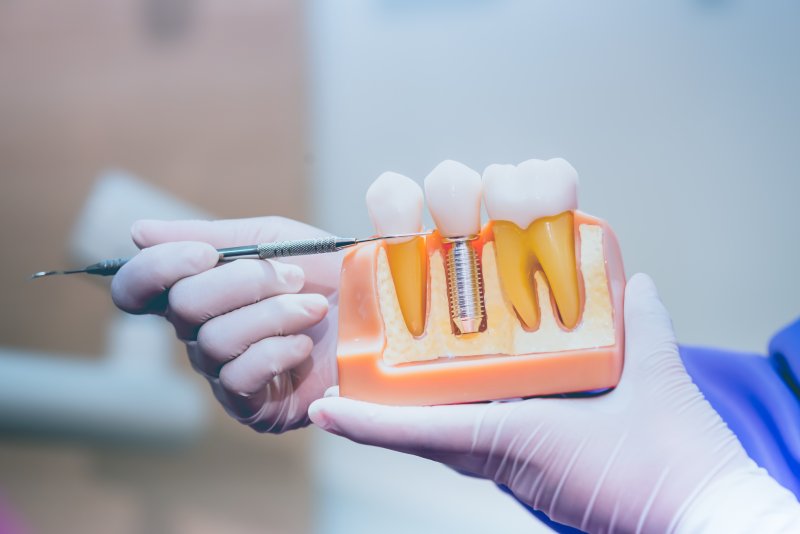
Tooth loss can have some detrimental effects on your oral health, self-esteem, and quality of life. Dental implants are incredible because they replace the entirety of your missing teeth, including the roots. This way, they can provide you with benefits that you can’t find from other tooth replacement options. There is a lot of info about implants out there, but many sources miss key definitions. As you begin the dental implant process, here are some terms that you should become familiar with.
Abutment
This is what connects your replacement tooth to the dental implant. This ensures that your new crown, bridge, or denture stays perfectly anchored in place. This way, you don’t need to worry about slipping, sliding, clicking, or other negative side effects of ill-fitting teeth.
Ceramic
This material is commonly used to create replacement teeth. It is made from a type of clay and then hardened by heat. It is an ideal option to create artificial teeth thanks to its durability and natural appearance.
Implant Dental Crown
A dental crown, also sometimes called a “cap,” is generally placed on a damaged tooth, an adjacent tooth of a dental bridge, or a dental implant that is used to replace a single tooth. In the case of dental implants, the dental crown is attached to the abutment to become grounded and secure.
Implant Dentures
Dentures are an incredibly common tooth replacement option that you are likely familiar with. However, did you know that there are multiple types of dentures? Instead of being held in with the shape and suction of the mouth, implant dentures are supported by dental implants. This allows patients with significant tooth loss to experience unmatched longevity and stability.
Osseointegration
Osseointegration is the fusion process that takes place between the jawbone and the dental implant. This term comes from the Greek and Latin words that mean “bone” and “to make whole.” Osseointegration strengthens the bone and supports the dental implants.
Titanium
The majority of dental implants are made from titanium. This type of metal offers several different advantages. For instance, very few people are allergic to titanium, so patients are more likely to have a positive outcome. Titanium is also lightweight, strong, and has the ability to bond with the bone, producing a stronger result that can last for many decades or even the rest of your life!
Bone Graft
Bone grafting is a surgical procedure that uses transplanted bone to repair and rebuild damaged bone. In many cases, patients who have lost teeth have also experienced significant bone loss in their jawbone. In order to properly support dental implants, it is crucial that the jawbone is sufficient enough. That’s why it isn’t uncommon for patients to need bone grafting before they can move forward in their dental implant journey.
By becoming familiar with these terms and their definitions, you will be able to better understand the process taking place when you get your new teeth. You’ll be showing off your new smile in no time!
About the Author
Dr. Tamir Anver is an experienced oral surgeon. He earned his dental doctorate (DDS) and medical degree (MD) in oral surgery, and he completed his residency at the prestigious University of Alabama at Birmingham. Some of his clinical interests include IV anesthesia, dental implants, bone grafting, and more! To learn more about dental implants or to schedule a consultation at his office in Dallas, visit his website or call (972) 960-1111.

